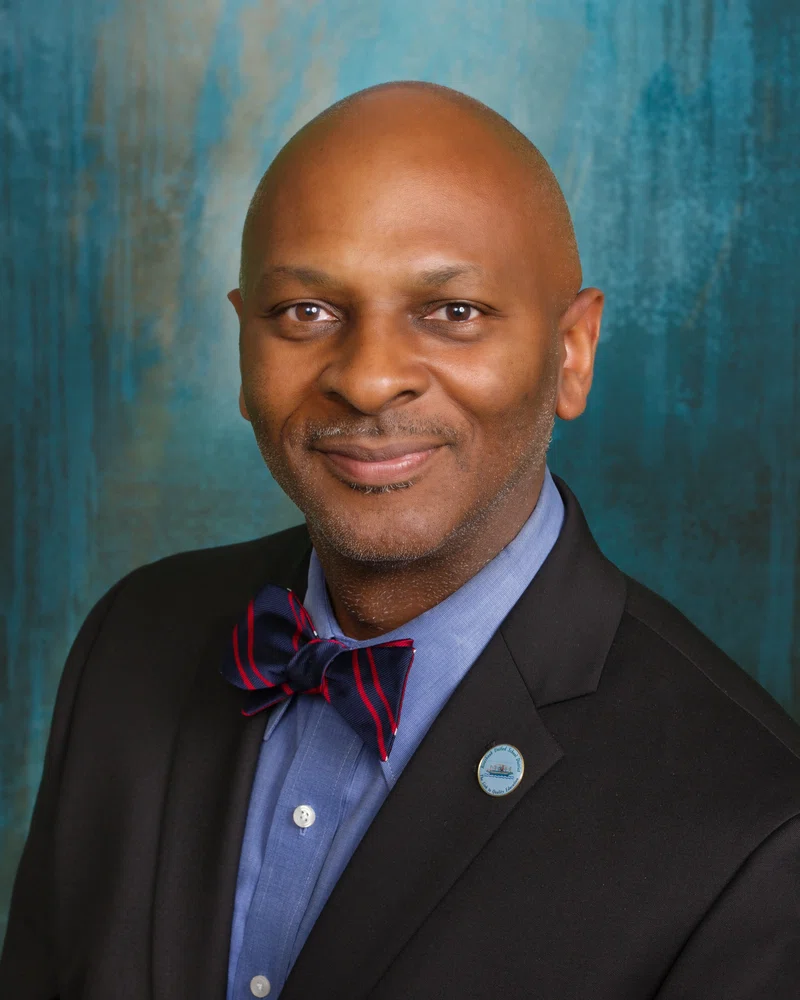Let’s keep listening to find our common ground
From the ACSA President, Dr. Daryl Camp
September 1, 2025

I have served as a superintendent in two very different parts of California.
My first superintendent experience was in the Central Valley in a relatively moderate area of the state. Voters in this community were evenly split between the Democratic and Republican candidates in the 2016 presidential election.
In 2019, I became the superintendent in a Bay Area school community that was more liberal in their voting and traditionally sided with Democratic candidates.
While these two communities were different, they each wanted the same thing: excellent schools where students could access a full range of possibilities after they graduated.
As I begin my term as president of ACSA, I am thinking about our members and the distinctive communities they serve up and down our great state. The thoughts, opinions and needs are different in each of their school districts because each school district is unique. As you are well aware, many of our communities are segregated by race, ethnicity and/or income level, and the segregation patterns result in commonalities in thinking about many topics. Even within these communities, a plurality of beliefs exist that must be heard.
As leaders in a democratic institution, it is our duty to create environments where multiple viewpoints are heard. Public schools are in an ideal position to provide spaces where students, families and the community can learn and discuss various topics of interest. In addition, discussing complex and sometimes controversial topics is necessary if our students are to develop critical thinking skills that are necessary in a democratic society. These critical thinking skills are needed in today’s job market.
I invite you to consider three ways that we can foster inclusivity in our schools.
The boardroom: The current political environment and culture wars have challenged leaders to develop and nurture effective school district governance teams. The superintendent and school board must act with intentionality in forming an inclusive governance culture. In my current district, the board is promoting a culture where multiple perspectives are heard and valued. A group consisting of two school trustees, two representatives from each professional association, and two members of the superintendent’s cabinet team meet monthly to discuss common areas of interest. This group called the Solutions Roundtable has been in place for over six years. Having diverse perspectives on the Solutions Roundtable team has been beneficial in navigating the pandemic, developing the Workplace Violence Prevention Plan and improving emergency communication. The school board has set an inclusive tone for the entire district.
School site leaders: School principals play a pivotal role in creating environments where multiple perspectives are not only welcomed but actively valued. One of the best ways to achieve this is by fostering a school culture built on trust, inclusion, and open communication. Principals can model this by intentionally inviting diverse voices into decision-making processes through staff meetings, student leadership councils, focus groups and parent advisory committees. When community members see their perspectives reflected in school policies and practices, it strengthens their sense of belonging and shared responsibility for the success of all students.
Classroom teachers: In the classroom, teachers can assist students in sharing viewpoints that represent students inside and outside of the classroom. When students are encouraged to consider multiple viewpoints, they learn to question assumptions, weigh evidence, and think independently. Educators must encourage learners to be curious. This type of intellectual engagement fosters deeper learning and helps students understand that complex issues often require nuanced thinking and that disagreement can be an opportunity for growth rather than conflict.
I also invite you to read the September/October issue of Leadership magazine on “Finding common ground” for additional insights from school leaders on how to honor diverse perspectives while doing what’s right for students.
An executive leader once said that it is important to be right, not at the start of a meeting, but at the end of the meeting after hearing from others on the team. As we begin the 2025-26 school year, I ask that you keep listening to all the voices. Some may be tempted to tune out the loudest voices, or those with opinions that differ from their own — but let’s stay curious.
Successfully navigating the complexities of today’s world requires the ability to understand multiple perspectives. In this era of divisive politics, school leaders are in a unique position to use information gathered from their communities to build bridges toward a better future.
Daryl Camp, Ed.D., is 2025-26 ACSA president and superintendent of San Lorenzo Unified School District.
FYI
September/October Issue
Find more insights on “Finding common ground” at leadership.acsa.org.




